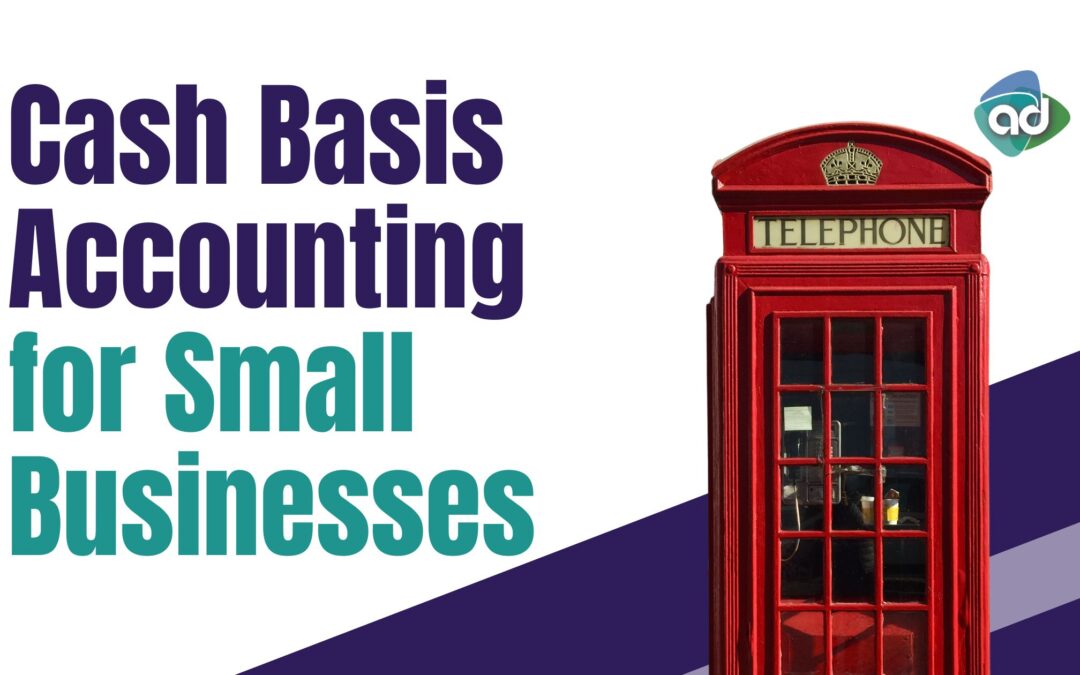Choosing the right accounting method can make a significant difference for small business owners.
For many small businesses, the cash basis accounting method offers a straightforward, less complicated alternative to the traditional accruals basis.
This guide will walk you through the essentials of cash basis accounting and how it can benefit your business.
What is Cash Basis Accounting?
Cash basis accounting is a method where income and expenses are recorded only when cash is received or paid.
This approach contrasts with the accruals basis, which records income and expenses when they are earned or incurred, regardless of when the cash is actually exchanged.
In the cash basis method, the timing of cash flows directly impacts your financial statements. This means that income is recognised when you receive payment from customers, and expenses are recognised when you actually pay your bills.
This method provides a more immediate reflection of your cash position, which can be particularly beneficial for small businesses that need to keep a close eye on their cash flow.
By focusing on actual cash transactions, cash basis accounting simplifies the accounting process. There’s no need to track accounts receivable or accounts payable, which can be complex and time-consuming.
This simplicity can reduce administrative burdens and make it easier to maintain accurate records. However, cash basis accounting also has its limitations.
It might not provide a complete picture of your business’s financial health, as it doesn’t account for money that is owed to you (receivables) or money that you owe (payables).
Despite this, the cash basis can be a highly effective method for small businesses with straightforward financial activities and a focus on cash flow management.
Benefits of Cash Basis Accounting
- Simplicity: Cash basis accounting is simpler because it involves fewer accounting adjustments. You don’t need to worry about tracking receivables and payables, making it easier to manage your books.
- Better Cash Flow Management: Since you record transactions only when cash changes hands, your accounts will reflect your actual cash flow, helping you manage your finances more effectively.
- Tax Advantages: You only pay tax on the income you’ve received, not on sales made on credit. This can be beneficial if you have slow-paying customers.
Eligibility for Cash Basis Accounting
Most sole traders and partnerships with annual sales or turnover of less than £150,000 can opt for the cash basis. If you’re a Universal Credit claimant, the entry threshold is higher, at £300,000.
As of April 2024, new rules have simplified this further, allowing more businesses to use cash basis accounting without strict entry and exit thresholds.
Key Features of Cash Basis Accounting
- Income Recognition: Income is recorded when you actually receive payment from customers.
- Expense Recognition: Expenses are recorded when you pay them.
- Capital Equipment: Most capital equipment, except for land, buildings, and cars, can be treated as an expense, simplifying your accounting further.
Special Rules and Considerations
- Interest and Finance Costs: Under the previous rules, you could claim up to £500 annually for interest and finance costs. However, starting April 2024, this cap has been removed, allowing you to claim the full amount if the expenses are wholly for business purposes.
- Trading Losses: Previously, trading losses could only be carried forward to offset future profits. From 2024, the rules have changed, allowing losses to be offset against other taxable income in the same year or carried back to the previous year.
- Leaving the Cash Basis: If your business grows and your turnover exceeds the threshold, or if you need to claim more than £500 in interest expenses, you may need to switch to the accruals basis. Transitional rules ensure that income and expenses are only taxed once during the switch.
Transitioning Between Methods
Switching from cash basis to accruals basis requires careful adjustments. For example, income recognised under the cash basis but not yet received must be accounted for in the new method.
These adjustments are spread over six years to avoid sudden tax liabilities.
New Rules from April 2024
As of April 2024, the cash basis has become the default accounting method for eligible businesses.
The significant changes include:
- No Entry/Exit Thresholds: Any business can use the cash basis, regardless of turnover.
- Default Method: Cash basis is now the default method, and businesses need to opt out if they prefer the accruals basis.
- Increased Flexibility: Businesses can choose the cash basis for each trade individually.
- Expanded Loss Relief: The new rules allow losses to be offset against other taxable income, providing greater flexibility in managing tax liabilities.
How to Implement Cash Basis Accounting
For the 2023/24 tax year, you must have elected to use the cash basis on your self-assessment tax return. From the 2024/25 tax year, the cash basis is applied automatically unless you opt out.
Cash basis accounting offers a simplified and practical approach to managing your business finances, especially for small businesses. By recording income and expenses only when cash changes hands, you can gain a clearer picture of your cash flow, simplify your bookkeeping, and potentially reduce your tax burden.
With the changes in 2024, this method has become even more accessible, allowing more businesses to benefit from its simplicity and efficiency.
If you’re unsure whether the cash basis is right for your business, consult with Accounts Direct for tailored advice and support.

